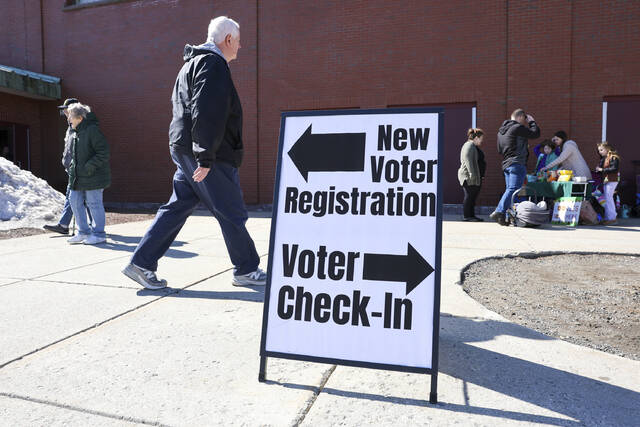Bail is money that serves as a guarantee that a defendant will show up in court. It is not meant to be punitive but simply a surety that the process plays out as intended.
Don’t show up? You not only have a new warrant for arrest, but you also lose your money or maybe the house or other property you put up as security.
Bail is not one size fits all — and it shouldn’t be. The $5,000 that secures one person’s release for a relatively petty crime might as well be $1 million if we are talking about someone living in poverty. A $1 million bail could be pocket change for a wealthy individual with a private plane and a vacation home in a nonextradition country.
Release has an important role in the criminal justice system. Without it, already-crowded county jail facilities would be filled to bursting. Families that depend on the salary of someone simply accused and not convicted of a crime would be devastated. People could be punished for years awaiting a determination of guilt or innocence.
But how much thought is given to the bail and the person and the circumstances? That’s what needs to change.
The case of Yan Carlos Pichardo Cepeda, 27, of New York is a perfect example.
Pichardo Cepeda was arrested outside the Pittsburgh Greyhound bus station on Aug. 31 with a suitcase containing 9 kilograms of fentanyl. That’s about 450,000 doses with a street value of $1.6 million. Depending on how you look at it, that suitcase was the equivalent of a deadly bomb or massive amounts of cash.
He was charged with two counts of felony possession with intent to deliver and two counts of misdemeanor possession. The next day, he cleared the first hurdle in his Pennsylvania criminal case: preliminary arraignment. District Judge Xander Orenstein released him with nonmonetary bond. He walked out without any surety he would return for court.
In an unsurprising turn of events, Pichardo Cepeda did not show up Monday for his preliminary hearing in Allegheny County Common Pleas Court.
This was a textbook example of a case that demanded bail at the least and had an excellent argument against bail at all.
Factors like being an out-of-state resident, indication of significant assets and the potential danger to the community are things that can weigh against release. Pichardo Cepeda hit them all. Current pending cases are another; he has two in New York — grand larceny and sexual assault. The $10,000 cash bond in the sexual assault case is likely to be forfeited because of the new charges.
Orenstein wrote in a judicial survey submitted to the ACLU’s Smart Justice initiative that they would “be very careful in considering each case that would come before me” because of those concerns about punitive bail or socioeconomic status.
However, there would appear to be an obvious difference between possession of a small amount of drugs by a local person with a job and family connections and an out-of-state person already free on bail for pending criminal charges and toting $1.6 million in fentanyl across state lines.
Everyone — including Pichardo Cepeda, who now has a nationwide warrant for his arrest — would have been better served with a more realistic assessment of bail in this case.
Editor’s note: Orenstein is nonbinary and uses they/them pronouns. An earlier version of this editorial used he/him pronouns.








